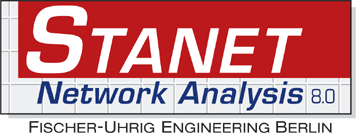Video Conferencing SDK Libraries
The LEADTOOLS Multimedia SDK Streaming Module includes video conferencing libraries and components to develop DirectShow and Media Foundation applications. LEAD's collection of world-class audio and video codecs will improve quality and speed while also cutting back on bandwidth consumption, creating the perfect environment to communicate using live multimedia streams over industry-standard communication protocols.

Video Conferencing Libraries
The video conferencing components of the LEADTOOLS Streaming Module can to send and receive multimedia data over TCP/IP networks with minimum coding. You can also use the LEAD Network Protocol Manager to send and receive multimedia data using a protocol other than TCP/IP.
- Stream MPEG-2 Transport over UDP and TCP/IP with any video and audio codec supported by MPEG-2 Transport
- Stream data from any RTSP source including ONVIF cameras using UDP or HTTP
- Stream data encapsulated in RTP packets over UDP or TCP streams using the MPEG-2 Transport UDP Source filter
- Play and convert HTTP streams
- Safely transmit confidential data with RC4 encryption
- Flexible filters and demultiplexers provide continuous streaming with changing formats

Easy to Integrate
LEADTOOLS handles the heavy lifting, eliminating months of R&D, while giving you the best quality and performance available. You'll be free to focus on other components of your application. Download the LEADTOOLS evaluation to streamline your development.

Video Conferencing SDK Platforms and Programming Interfaces
Operating Systems
Projects that use LEADTOOLS Video Conferencing libraries can be deployed to Windows devices.
Frameworks
Developers that are leveraging these frameworks can utilize the Video Conferencing SDK: .NET 6+, .NET Framework, WinForms, and ASP.NET
Programming, Scripting, Markup
Video Conferencing code snippets and demo applications are provided for the following: C#, VB, XAML, and C/C++
Start Coding with LEADTOOLS Video Conferencing
Multimedia libraries for Windows development in C, C++, C#, and VB.NET targeting DirectShow and Media Foundation frameworks.










